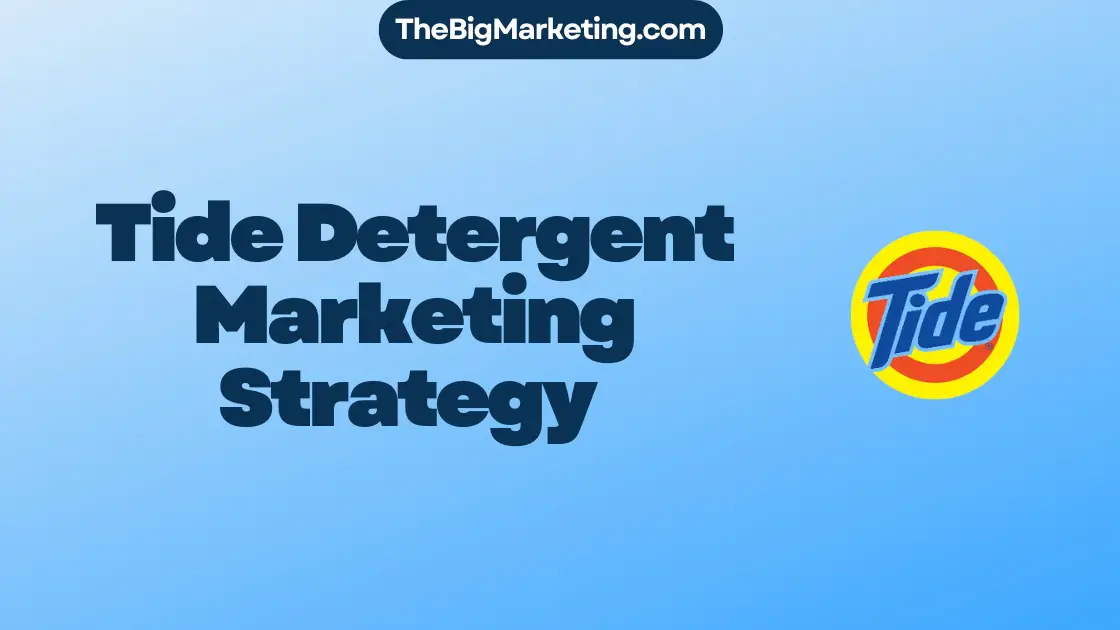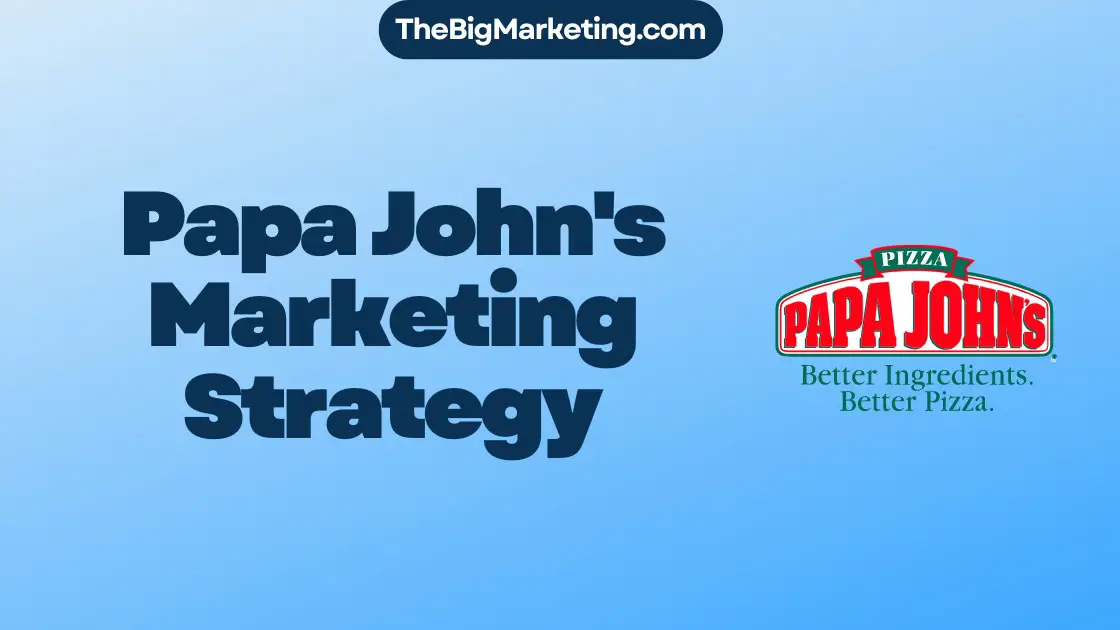Coca-Cola, the world’s largest manufacturer of nonalcoholic beverages, has established Diet Coke as a global leader in the soda industry. Through its innovative marketing strategy, Diet Coke has successfully positioned itself as a preferred choice among consumers worldwide. This article delves into the brand’s marketing strategy, focusing on its brand positioning and promotional tactics.
Key Takeaways:
- Diet Coke has a robust marketing strategy that has contributed to its global success.
- The brand focuses on effective brand positioning to differentiate itself from competitors.
- Diet Coke utilizes innovative promotional tactics to engage consumers and maintain market presence.
- Coca-Cola’s extensive product portfolio includes Diet Coke, catering to diverse consumer preferences.
- Through a balanced pricing strategy and wide distribution network, Diet Coke ensures accessibility for consumers across different income levels and regions.
Target Audience Analysis
Diet Coke’s marketing strategy aims to attract a diverse range of demographics, enabling the brand to maintain its wide consumer base. By understanding the preferences and needs of different target audiences, Diet Coke has successfully positioned itself as a popular choice in the soda market. Let’s delve into the target audience analysis of Diet Coke:
Young Consumers: Age 10-35
One of Diet Coke’s primary target audiences is young people between the ages of 10 and 35. To appeal to this demographic, the brand leverages celebrity endorsements and engages in campaigns within educational institutions. By associating itself with popular celebrities and influencers, Diet Coke creates a sense of aspiration and connection with this younger audience. It’s no surprise to see Diet Coke cans featuring the faces of prominent figures, sparking excitement and interest among young consumers.
Health-Conscious and Diabetic Adults: Middle-Aged and Older
Diet Coke also caters to middle-aged and older adults who prioritize health and fitness or have dietary restrictions such as diabetes. The brand capitalizes on the “diet” aspect of its name, positioning itself as a healthier alternative to regular sodas. Diet Coke’s sugar-free formulation and low-calorie content appeal to individuals who wish to make conscious choices about their beverage consumption. By offering a guilt-free option, Diet Coke successfully captures the loyalty of health-conscious and diabetic adults.
Flexible Pricing to Cater to All Income Levels and Family Sizes
Diet Coke’s target audience analysis extends beyond age and health concerns. The brand understands that consumer purchasing power varies across different income levels and family sizes. To accommodate these variations, Diet Coke adopts a flexible pricing strategy. By offering a range of package sizes and pricing options, including multipacks and single-serve bottles, the brand ensures accessibility and affordability for a wide range of consumers. This customer-centric approach enables Diet Coke to capture a significant portion of the market.
Ultimately, Diet Coke’s target audience analysis reveals its ability to connect with diverse demographics by understanding their unique preferences and needs. By leveraging effective marketing techniques, such as celebrity endorsements, educational campaigns, and flexible pricing, Diet Coke continues to thrive as a popular choice among consumers.
| Target Audience | Key Characteristics |
|---|---|
| Young Consumers: Age 10-35 | Celebrity endorsements, educational campaigns |
| Health-Conscious and Diabetic Adults: Middle-Aged and Older | Low-calorie, sugar-free formulation |
| Flexible Pricing to Cater to All Income Levels and Family Sizes | Variety of package sizes, affordability |
Market Segmentation
Diet Coke’s market segmentation strategy incorporates various factors such as different cultures, customs, and climates worldwide. The brand understands the importance of catering to diverse consumer preferences to ensure its global appeal. One key aspect of Diet Coke’s market segmentation revolves around gender-based targeting and preference.
Gender-based Segmentation
- Coca-Cola light, a variant of Diet Coke, is preferred by females due to its lighter taste and packaging.
- Coke Zero and Thumbs Up, other variants of Diet Coke, are favored by men as they offer unique flavor profiles and branding that resonate with their preferences.
By recognizing the distinct preferences of different genders, Diet Coke ensures it captures a wider customer base and effectively engages with diverse target audiences on a global scale.
Regional Preferences
Diet Coke goes beyond gender-based segmentation and also recognizes the importance of regional preferences in different markets. The brand understands that consumer tastes and preferences vary across regions, and tailors its offerings to accommodate these differences. This strategy allows Diet Coke to connect with consumers on a local level and provide them with the flavors and formulations they desire.
For example, Diet Coke offers a range of unique flavors and formulations in different regions. In some countries, Diet Coke may have localized flavors that resonate with the local culture and preferences. By doing so, Diet Coke ensures that it remains relevant and appealing to consumers in every market it serves.
| Region | Preferred Diet Coke Flavors |
|---|---|
| North America | Diet Coke, Cherry Diet Coke |
| Europe | Diet Coke, Lime Diet Coke |
| Asia | Diet Coke, Pink Grapefruit Diet Coke |
| Australia | Diet Coke, Vanilla Diet Coke |
Through its market segmentation efforts, Diet Coke successfully tailors its offerings to specific regions, capturing the attention and loyalty of consumers worldwide.
Marketing Channels
Diet Coke employs a comprehensive approach to marketing, utilizing both personal and non-personal channels to engage with its target audience and ensure widespread visibility.
Personal Channels
Direct communication plays a crucial role in Diet Coke’s marketing strategy. Personal channels such as face-to-face interactions, customer service hotlines, and personalized emails allow the brand to establish a direct connection with consumers. These channels enable Diet Coke to provide personalized recommendations, address inquiries, and gather valuable feedback directly from its customers.
Non-Personal Channels
In addition to personal channels, Diet Coke leverages a mix of online and offline media to reach and engage its target audience. This multi-channel approach helps to maximize brand exposure and maintain a consistent presence across various platforms.
Non-personal marketing channels employed by Diet Coke include:
- Newspapers: The brand strategically places advertisements and inserts in popular newspapers to target a wide range of readers.
- Promotion Campaigns: Diet Coke actively engages in promotional campaigns, collaborating with influencers and celebrities to increase brand visibility and attract new customers.
- Events: Sponsorships and partnerships with events such as music festivals, sporting events, and charity galas allow Diet Coke to connect with consumers on a more personal level.
- Television: Diet Coke utilizes television commercials to showcase its latest campaigns and appeal to a broad audience.
- Posters: Eye-catching posters are strategically placed in high-traffic areas to generate brand awareness and promote product offerings.
- Emails: Targeted email campaigns are used to communicate promotions, exclusive offers, and product updates directly to customers’ inboxes.
- Webpages: Diet Coke maintains a strong online presence through its website, which serves as a hub for product information, recipes, and engaging content.
- Leaflets: Diet Coke distributes informative leaflets at events and outlets to educate consumers about the brand’s offerings and promotions.
- Billboards: Large-scale billboards in strategic locations effectively capture the attention of passersby, reinforcing brand presence and visibility.
- PR Activities: Engaging in public relations activities helps Diet Coke maintain a positive brand image and garner media attention.
- Social Media: Diet Coke leverages popular social media platforms such as Facebook, Instagram, and Twitter to connect with consumers, share engaging content, and launch interactive campaigns.
- Magazines: Advertisements placed in lifestyle and entertainment magazines enable Diet Coke to target specific demographics and reach its core audience.
- Radio: Radio advertisements effectively target consumers during their daily routines, reaching them at home, in the car, or at work.
By utilizing these various marketing channels, Diet Coke ensures that its brand message is communicated to a wide range of consumers, allowing for broad visibility, increased engagement, and continued success in the market.
Product Strategy
Diet Coke is an integral part of Coca-Cola’s extensive product portfolio. As a leading manufacturer of nonalcoholic beverages, Coca-Cola offers approximately 500 different beverages in various sizes and packaging options. In addition to Diet Coke, some of the popular options in their portfolio include Coca-Cola, Minute Maid, Coca-Cola Life, Coca-Cola Zero, Sprite, and Fanta.
This diverse range of products allows Coca-Cola to cater to different consumer preferences and generate significant profits. With a comprehensive product strategy, Coca-Cola ensures that they have a beverage option for everyone, whether it’s a calorie-conscious individual looking for a sugar-free soda or someone craving a classic Coca-Cola taste.
This extensive product portfolio also provides Coca-Cola with leverage in the market, allowing them to capture a larger share of the beverage industry. By offering a wide array of options, they can attract a broader consumer base and maintain their position as a global beverage leader.
Consumer-centric Approach
Coca-Cola’s product strategy is centered around understanding consumer preferences and meeting their needs. Through market research and analysis, Coca-Cola identifies emerging trends, flavor preferences, and health-conscious choices.
By continuously innovating and introducing new products or variations, Coca-Cola can stay relevant in the ever-evolving beverage market. This consumer-centric approach allows them to adapt to changing consumer demands and maintain a competitive edge.
Whether it’s launching a new flavor or introducing a beverage with reduced sugar content, Coca-Cola’s product strategy is driven by the aim of providing the best beverage options to their consumers.
Pricing Strategy
In order to maintain a balance between affordability and perceived value, Diet Coke has implemented a strategic pricing strategy. The brand adjusts its prices in a way that keeps them competitive without compromising the perception of product quality. This approach allows Diet Coke to cater to the diverse needs and budgets of a wide range of consumers.
One of the key elements of Diet Coke’s pricing strategy is offering different packaging and size options. By providing various choices, the brand ensures accessibility and affordability for consumers who have specific preferences or budget constraints. This flexibility allows Diet Coke to capture a larger market share and cater to different consumer segments.
The pricing strategy of Diet Coke has been carefully designed to strike a balance between appealing to consumers’ price sensitivity while maintaining the brand’s premium positioning. By offering competitive prices and different packaging options, Diet Coke successfully positions itself as an accessible and premium brand in the market.
The image above visually represents the pricing strategy implemented by Diet Coke. It showcases the different packaging options and size variants available to consumers, highlighting the brand’s commitment to offering a diverse range of choices.
Place Strategy
Diet Coke’s place strategy is an integral part of its comprehensive marketing approach. With a distribution network spanning six regions – North America, Latin America, Africa, Europe, the Pacific, and Eurasia – the brand ensures its products are readily available to consumers worldwide.
To ensure efficient production, packaging, and distribution, Diet Coke collaborates with bottling partners. These partners play a critical role in manufacturing, packaging, and delivering the products to agents, stockists, distributors, retailers, and ultimately, consumers.
In addition to its extensive distribution network, Diet Coke also emphasizes sustainability through its reverse supply chain. This initiative involves the collection and reuse of glass bottles, reducing waste and demonstrating the brand’s commitment to environmental responsibility.
The incorporation of sustainable practices not only aligns with consumers’ growing concern for the environment but also contributes to Diet Coke’s overall brand image and reputation. By embracing a place strategy that prioritizes accessibility, efficiency, and sustainability, Diet Coke remains an industry leader in the global beverage market.
Promotion Strategy
Diet Coke understands the significance of effective promotional and marketing strategies in maintaining its market presence. By investing heavily in various advertising mediums, the brand ensures maximum visibility and engagement with its target audience. Annually, Diet Coke dedicates millions to both traditional and international promotions, spanning television, print media, digital platforms, and more. The brand leverages its iconic branding elements, such as its classic bottle shape, font, and logo, to differentiate itself from competitors and reinforce its brand recognition.
One of Diet Coke’s successful promotion strategies involves partnering with influential personalities and celebrities who resonate with its target audience. These collaborations help extend the brand’s reach, create buzz around its products, and enhance consumer perception.
Diet Coke’s promotional efforts also focus on creating emotional connections with consumers. The brand often emphasizes the experience and lifestyle associated with consuming its products. By using clever storytelling and captivating visuals, Diet Coke aims to inspire positive associations and foster brand loyalty among consumers.
To further strengthen its promotional efforts, Diet Coke actively engages with consumers through social media platforms. The brand leverages the power of user-generated content and influencer collaborations to create engaging campaigns and generate buzz. These initiatives encourage consumers to share their experiences with Diet Coke, effectively amplifying the brand’s reach and increasing its online visibility.
Social Media Contests
In addition to influencer collaborations, Diet Coke frequently organizes social media contests to boost engagement and interaction with its audience. These contests provide an opportunity for consumers to win exclusive rewards, gift cards, or even meet their favorite celebrities associated with the brand. By encouraging user participation, Diet Coke enhances brand affinity and creates a sense of excitement and exclusivity among consumers.
Digital Advertising
Digital advertising plays a crucial role in Diet Coke’s promotion strategy. The brand utilizes targeted online ads, including display ads, search engine marketing, and social media advertising, to reach its desired audience effectively. With data-driven targeting and personalized messaging, Diet Coke ensures that its promotional content reaches the right people at the right time, maximizing its impact and driving engagement.
In conclusion, Diet Coke’s promotion strategy encompasses a diverse range of mediums, strategic partnerships, emotional storytelling, and digital advertising. By consistently investing in promotional efforts and leveraging its iconic brand elements, Diet Coke effectively maintains its market presence while engaging and connecting with its target audience.
Localized Positioning
In its quest for global dominance, Diet Coke has embraced a localized marketing strategy that sets it apart from its competitors. The brand’s innovative ‘Share a Coke’ campaign, which spanned nearly fifty countries, exemplifies this approach. By featuring local celebrities and tailoring messages to the local language and culture, Diet Coke successfully appeals to diverse regional markets.
This localized positioning strategy allows Diet Coke to create a personal connection with consumers in each region, fostering brand loyalty and resonance. Recognizing the importance of cultural nuances and preferences, the brand goes beyond a one-size-fits-all marketing approach and instead crafts targeted campaigns that resonate with local consumers on a deeper level.
By tapping into local celebrities and influencers, Diet Coke leverages their influence and credibility to enhance brand perception and relevance. This strategic collaboration not only increases the brand’s visibility among the target audience but also aligns it with local values and aspirations.
Moreover, Diet Coke’s messages tailored to the local language and culture demonstrate a genuine understanding of the local market dynamics. This localization effort helps the brand overcome potential language and cultural barriers, making it more relatable and accessible to consumers in different regions.
The success of Diet Coke’s localized positioning is evident in the strong emotional connection it creates with consumers. By showcasing a commitment to understanding and embracing each unique market, the brand nurtures a sense of belonging and loyalty that drives consumer preference and repeat purchases.
Sponsorships
Diet Coke is renowned for its impressive lineup of sponsorships, partnering with prestigious events such as the Olympic Games, NASCAR, and American Idol. These strategic collaborations not only provide support to athletes and fans but also serve as powerful platforms to enhance Diet Coke’s brand visibility and association with highly regarded events.
By sponsoring the Olympic Games, Diet Coke aligns itself with the spirit of competition, athleticism, and global unity. This partnership allows the brand to reach a massive international audience, promoting its products to individuals from diverse backgrounds and cultures.
Similarly, Diet Coke’s sponsorship of NASCAR showcases its commitment to the exhilarating world of motorsports. Through this partnership, Diet Coke gains access to a passionate and loyal fan base, creating opportunities for engagement and brand promotion. The thrilling races and high-speed action effectively capture the attention of fans, further reinforcing Diet Coke’s market presence.
Another notable collaboration for Diet Coke is its sponsorship of American Idol, one of the most popular singing competitions in the United States. By associating with this highly watched television show, Diet Coke targets a broad audience of music enthusiasts, leveraging the emotional appeal of talented contestants and captivating performances to connect with consumers.
These significant sponsorships not only attract attention but also solidify Diet Coke’s position as a top player in the beverage industry. By aligning with impactful events and engaging with passionate communities of sports enthusiasts and music lovers, Diet Coke continuously reinforces its market presence and enhances its brand image.
Sponsorship Overview
| Event | Description |
|---|---|
| Olympic Games | An international sporting event that brings together athletes from around the world. Diet Coke’s sponsorship reinforces the brand’s association with global unity, competition, and athleticism. |
| NASCAR | A popular motorsports event that captivates fans with thrilling races and high-speed action. Diet Coke’s partnership allows the brand to engage with a passionate fan base and increase brand visibility. |
| American Idol | A widely watched singing competition that showcases talented contestants and captivating performances. Diet Coke’s sponsorship targets music enthusiasts and leverages the emotional appeal of the show to connect with consumers. |
Conclusion
Through its effective marketing strategy, Diet Coke has solidified its position as a leader in the beverage industry. By leveraging a multi-faceted approach that appeals to diverse target audiences, utilizing a wide range of marketing channels, implementing successful product, pricing, and place strategies, and investing in strategic promotions and sponsorships, Diet Coke has not only built brand loyalty but also achieved a substantial market share.
The Diet Coke Marketing Strategy has proven its ability to capture the attention and loyalty of consumers across various age groups, income levels, and regions. By understanding the unique needs and preferences of its target audience, Diet Coke has been able to position itself as a go-to choice for health-conscious individuals, diabetics, and those seeking a flavorful, low-calorie alternative.
Furthermore, Diet Coke’s commitment to engaging its customers through effective marketing channels has played a crucial role in its success. By utilizing both personal and non-personal approaches, such as direct communication, online platforms, and traditional media, the brand has been able to reach a wide range of consumers and maintain a strong presence in the market.
Overall, the Diet Coke Marketing Strategy stands as a testament to the power of strategic marketing tactics in building brand loyalty and increasing market share. With its ability to adapt to changing consumer demands, continuously innovate its product offerings, and deliver captivating promotional campaigns, Diet Coke has cemented its position as a beloved and trusted brand in the beverage industry.







